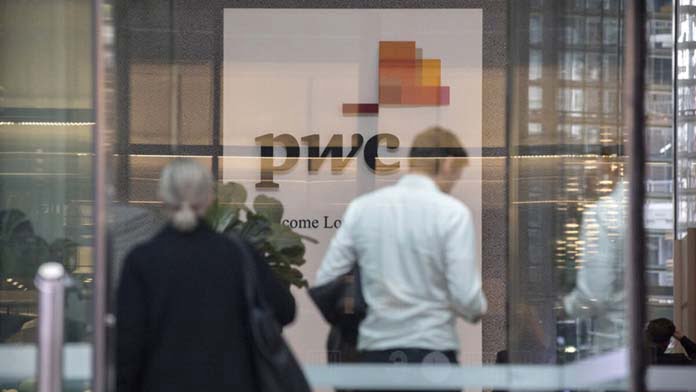The scandal over PwC’s attempt to profit from confidential government information has shone a light on the scale of government outsourcing.
Nine PwC partners have been stood down pending an internal investigation.
The accountancy/consultancy firm faces an effective ban from new contracts with federal and state governments and their agencies.
Senate hearings have revealed the federal government’s reliance on the firm. The Guardian estimates that PwC had more than $500 million in total contracts with the federal government last year.
The Reserve Bank has said it will not sign any new contracts with PwC “until it can demonstrate complete transparency”. But it will allow PwC to continue to audit it, under an existing contract.
The Defence Department revealed that it has more than $223 million of contracts with PwC.
The Home Affairs department has six active contracts worth $8.13 million. Secretary Mike Pezzullo told the Senate Committee that he had “lost confidence in PwC” but would give the company “a chance to prove itself under its new leadership”.
The Treasury Department has now referred PwC to the Federal Police (AFP) for criminal investigation, but only after 144 pages of incriminating PwC emails were tabled at a senate inquiry.
It turns out the AFP uses PwC for most of its auditing too, with $20 million worth of contracts since 2021. AFP Commissioner Reece Kershaw said he saw no perceived “conflict of interest” in this, despite his old friend, former NSW Police Commissioner Mick Fuller, being a PwC partner.
Outsourcing
The public sector is now totally reliant on private consulting firms after 40 years of neoliberalism.
This has seen deliberate cutbacks of government services for workers and the poor to line the pockets of the rich. Private consultants like PwC and the other big three accounting firms—Deloitte, EY, KPMG— have profited handsomely.
All manner of service providers, from job placement firms, private law firms to the managers of offshore detention centres, have been gorging at the public trough for years.
Total government spending—whether under Labor or Liberal governments—has risen slightly relative to the size of the economy over the past 20 years.
In 1999-2000, under John Howard’s Liberal government, federal expenditure was 23.2 per cent of GDP and, pre-COVID, in 2018-2019 expenditure was 24.9 per cent. The Liberals have never lived up to their rhetoric about “reining in government spending”.
However, government jobs and services have declined, with annual “efficiency dividend” cuts imposed on each and every department. So where is all the government money going?
In 2021-22, Scott Morrison’s Liberal government spent a total of $20.8 billion on consultants and service providers, the equivalent of 40 per cent of the cost of the 144,000 employees of the Australian Public Service.
As UNSW Associate Professor in Law, Scott Donald said, outsourcing has meant “parts of the public service have clearly been hollowed out”.
This has meant the loss of both practical experience and technical knowledge.
Outsourcing was meant to be cheaper than doing the work in-house. But as the PwC scandal shows, private companies put their own interests above those of governments or the public. There is an inbuilt conflict of interest—with consulting firms’ desire for more contracts and greater profits coming ahead of anything else.
Sometimes the public service doesn’t have the knowledge to evaluate the quality of the services contractors provide.
But often, consultants like PwC are deliberately hired to savage the workforce, offering management “strategies” to restructure, cut costs, and substitute marketing as an empty alternative to real services.
Criminal charges
The Australian Tax Office (ATO) became suspicious as long ago as 2016 that tax changes by well-known tax avoiders were due to insider information.
In 2018 the ATO and AFP decided there was not enough evidence for criminal charges against PwC.
Treasury officials told a senate inquiry they were first told of the possible breach of confidentiality in September 2018.
Treasury then quietly passed on information to the little-known Tax Practitioners Board.
It followed up and took the unusual step of banning a tax agent, Peter Collins, who was the key PwC partner with confidential information on planned tax avoidance changes, publishing the ban in December 2022.
PwC, from the start, tried to blame a lone partner. But dozens of staff received the inside information.
Greens Senator Barbara Pocock wants the more than 70 partners who were sent the original group email about the tax dodge PwC was going to sell companies to be named.
PwC is on the outer, with its business in tatters. But Labor is showing no desire to wind back the wider outsourcing and dismantling of the public sector.
By Tom Orsag






